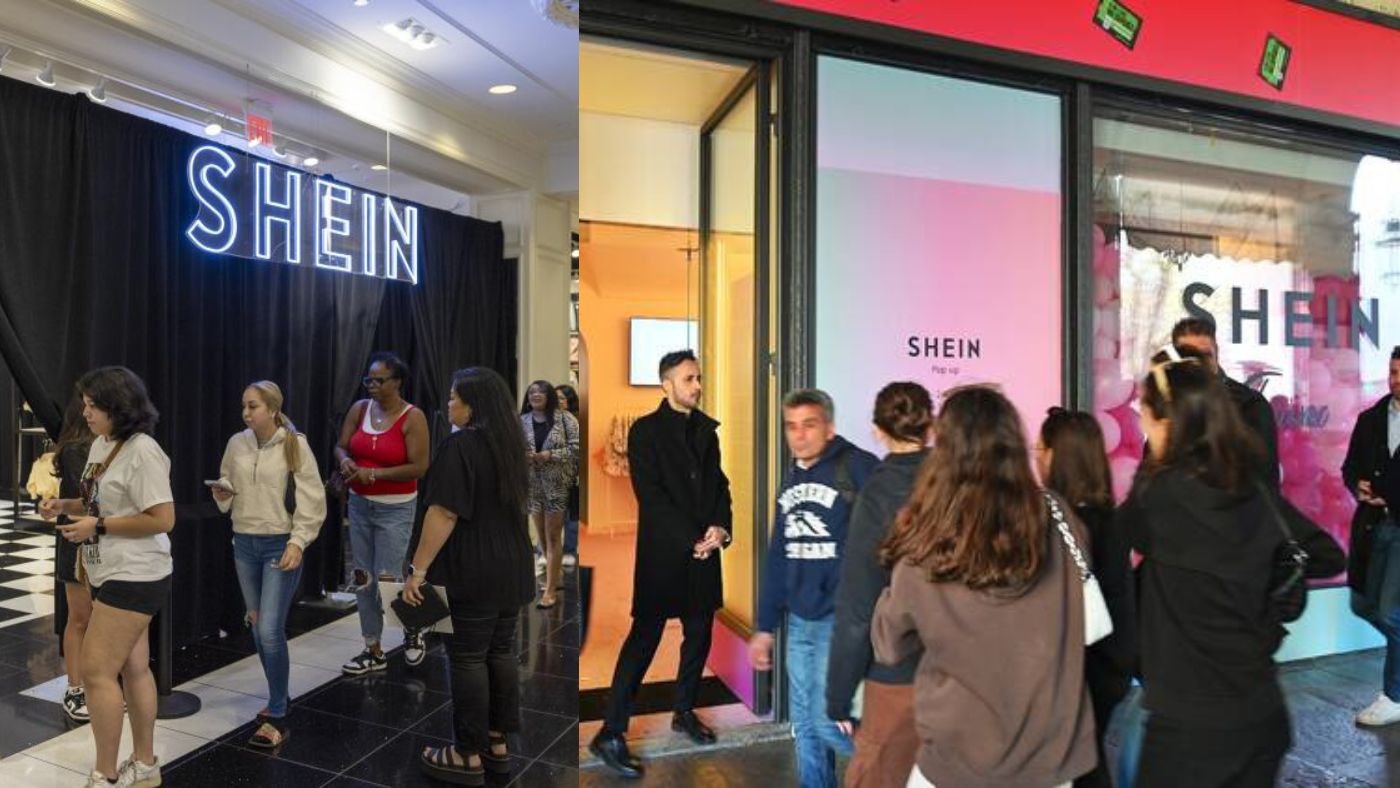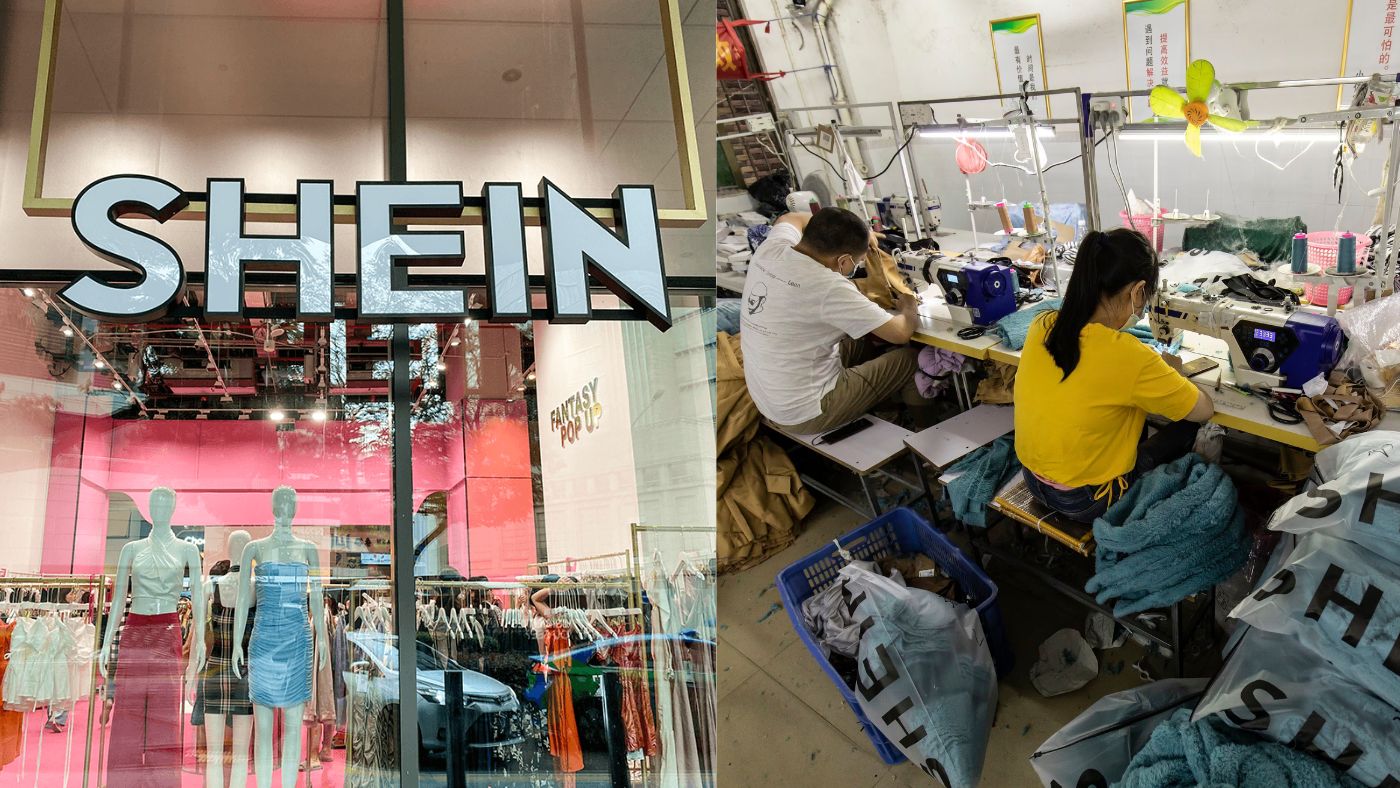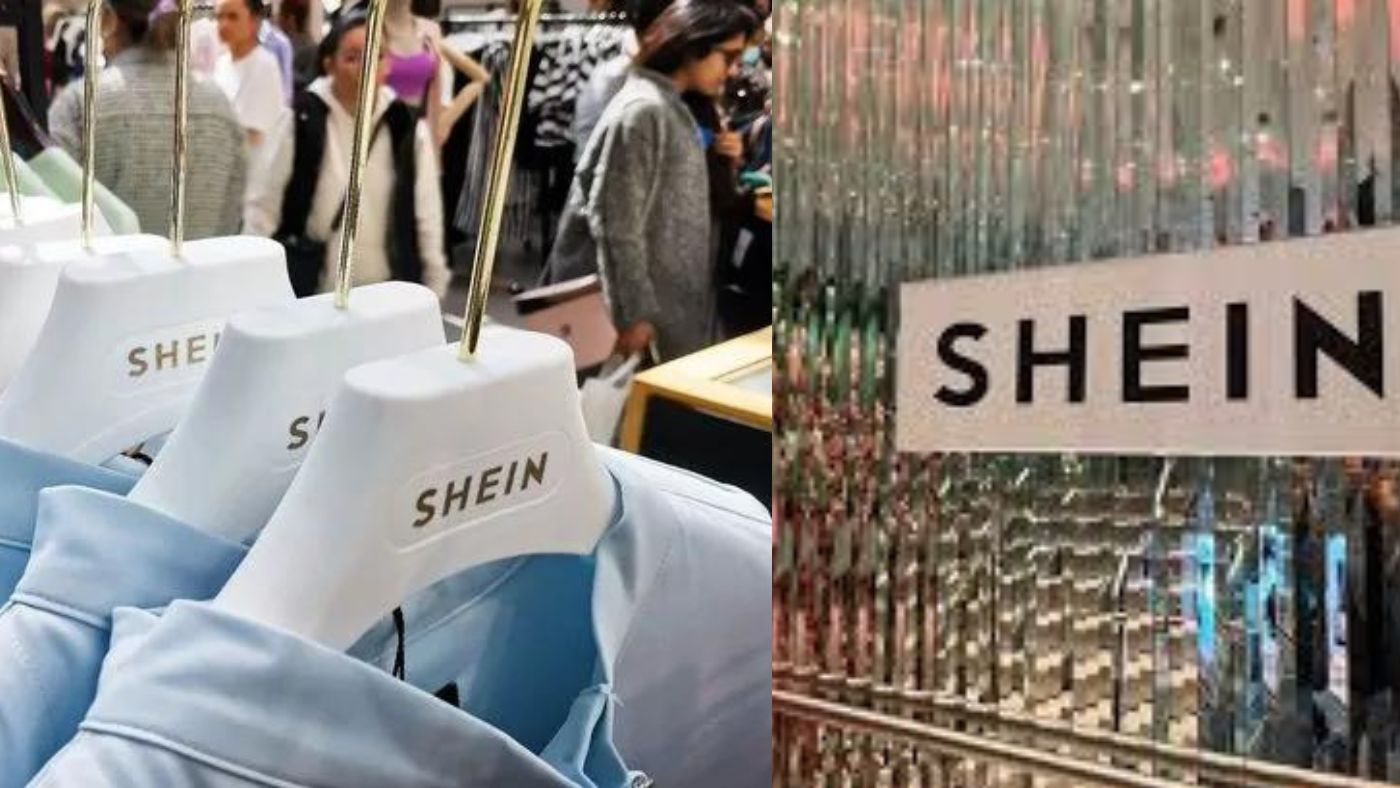Need a new outfit for a party but don’t want to break the bank? Shein is an obvious place to look. This week, I saw a glittery tank top that would make me the belle of the barbeque for £2.49.
If you’re looking for a dress, £1.49 will get you the Quirky Fun Dopamine Supermarket Food Newspaper Printed mini skirt.
You might like the clothes, or at least the prices, but should you buy the shares? The fast-fashion retailer is close to choosing London for a public listing.
This is a big deal, literally and metaphorically. The numbers are large. The float could value the company at about £60 billion. If it sold 10 percent, that would mean a £6 billion fundraising, the biggest since Glencore made its debut in 2011.
The issues involved are large, too. Some think that Shein is the unacceptable face of fast fashion, not just because low prices make the clothes easy to throw away.
There are accusations of terrible conditions in its supply chain and that it benefits from forced labor in China, particularly cotton from farms worked by detained Uighur Muslims.
Peter Hugh Smith, the chief executive of CCLA Investment Management, which runs money for the Church of England, charities, and councils, made the case on Times Radio on Tuesday and in an op-ed in The Times on the same day.
He wants London to reject Shein, saying that it is a question of “values not valuation.” The solution to the market’s doldrums is not “to make the UK a listing place of last resort for companies with dubious human rights records.”
So how much do we actually know about the company, apart from the fact that it sells very cheap clothes?
Not a lot, is the short answer, but some ferreting around allows you to make educated guesses about what the prospectus will say and the main risks associated with buying the shares.
The back story is well known. Shein was set up in Nanjing in 2008. There are four founders, but the main man is Xu Yangtian, or Chris Xu as he is now more commonly known.
It grew fast and moved its headquarters to Singapore in late 2021. Nearly all the supply chain is still in China and it sends clothes all over the world, but the United States is its biggest market.

A few things set it apart from its rivals. The products change very rapidly—I couldn’t find my barbeque top two days after I spotted it—and it embraces social media wholeheartedly, such that the website looks at times more like TikTok than a clothes retailer.
It relies on air freight to serve Western markets, allowing it to deliver stock rapidly, to continually change its lineup, and, because of the low value of the individual packages, to avoid most customs duties.
Xu has already brought in outside investors, including four private equity firms: Jafco Asia, IDG Capital, Sequoia, and Tiger Global.
There is nothing available publicly about its finances. It does not publish accounts. The Financial Times recently wrote that it had gross sales (the value of goods transacted through the website) of $45 billion last year and profits of $2 billion, double those of the year before.
There was no confirmation of the numbers from the company and the report is thought to have been based on a letter to outside investors.
If the numbers are right, the prospectus will paint a picture of rapid growth in a technology-heavy industry popular with young consumers, a heady mix that some investors will find hard to resist.
The document may also offer some insight into Shein’s corporate structure. The headquarters is in Singapore, but the holding company there is owned in turn by a British Virgin Islands vehicle (Beauty of Talent BVI) and that by a Cayman Islands-registered company (Elite Depot).
This use of tax havens might sound exotic, but it is not unusual for Chinese companies, or multinationals in general. But structure is important. Prospective shareholders will want to know what rights they will have buying into a UK vehicle set up by companies located in those specific jurisdictions.
Investigations by Public Eye, an independent Swiss campaign group, and by Wired, the magazine, have found examples of sweatshop-style practices among its suppliers, particularly in Guangzhou.

The allegations of profiting from forced labor are more difficult to pin down. Shein products were tested in November 2022 and found evidence of cotton from Xinjiang, the Chinese province where human rights campaigners say Uighur workers are forced to work.
A US customs investigation found that 27 percent of Chinese clothes imports it sampled contained Xinjiang cotton. Chinese clothes manufacturers are not alone in using the fabric: many Western companies have used it and only recently made efforts to eliminate it.
Shein’s attempt to answer these claims will be in the ESG (environmental, social, and governance) section of the prospectus. You can work out what that will look like from the annual ESG report, available on the website. It is nearly identical to those produced by big Western clothes retailers.
There are colorful pictures of models in Shein clothes and heartwarming stories of the designers who come up with the latest looks. On cotton sourcing, it says that on top of its own checks it has appointed Oritain, a New Zealand-based company, to conduct tests on its fabrics.
The boss of Oritain said last year that those tests had revealed that 1.7 percent of Shein’s cotton came from “unapproved regions.” The average for other clothing manufacturers was 6 percent.
Shein says it has a code of conduct for suppliers and audits to enforce it. They are graded from A to D and there is a long list of “zero-tolerance violations,” from having worker accommodation on the premises to bribing local officials.
This structured approach and involvement of external assessors may ease some would-be investors’ fears. Many, rightly, will remain skeptical.
Establishing the reality of a supply chain in China is difficult. There are plenty of independent reports that paint a quite different picture and who knows how much of the unvarnished truth Shein wants to provide.
There is another big risk. The two congressional sub-committee investigations into Chinese fast-fashion imports have focused on the broad exemption from customs duty that companies such as Shein enjoy thanks to their shipping hundreds of thousands of small packages, rather than single large consignments.
If the rules were to be changed—and the European Union is looking at the issue, too—Shein would lose some of its price advantage.
There could be a chance to buy shares soon. Shein’s advisers will know that British political opposition to the listing will be muted by the run-up to the election and the London stock market, long starved of big-name listings, will be eager to press ahead. But investors should be careful.
Not only is it impossible to make a proper judgment on the allegations against its supply chain, but also there are risks to its business model from the closing of the customs duty loophole and an opaque governance structure. One to avoid, unless the prospectus can properly answer all those questions.







Leave a Reply